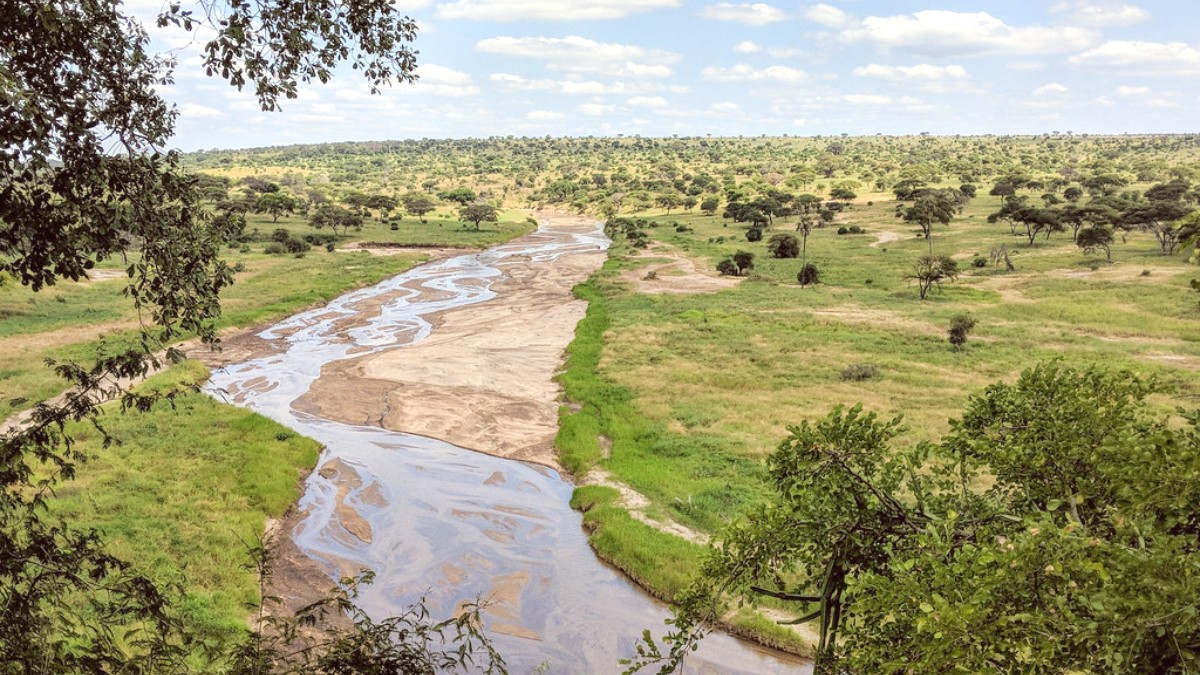
Northern Tanzania, Tanzania
Opt for lightweight, breathable, and quick-drying fabrics (cotton blends, synthetics, merino wool). For safaris, neutral colors like khaki, tan, green, or grey aid blending into the environment and attract fewer insects. Avoid bright colors or white.
Prioritize waterproof outer layers. Quick-drying clothes are useful, as garments may not dry quickly in humid conditions. Consider an extra set of clothes. Modest dress is appreciated outside of private resorts or very tourist-heavy areas.
Comfortable closed-toe shoes or sturdy sandals for walking around lodges, camps, and town. Sneakers work well.
Invest in broken-in, Waterproof hiking boots with good ankle support. These are paramount for safety and comfort on mountain trails. Bring spare shoes or Comfortable sandals for evenings at camp.
If canoeing or engaging in water-based activities (e.g., Momella Lakes), Water shoes or sandals that can get wet are useful.
Prepare both physical and digital copies of everything important. Carry originals, but store copies separately.
Power access can be limited in some areas, notably on safari. Tanzania uses 230V, Type G (UK standard) plugs.
For safaris, a camera with a good zoom lens (200mm+) is highly recommended. Plenty of spare memory cards and extra batteries are wise due to limited charging opportunities.
Google Maps (download offline areas), Maps.me (offline maps), Google Translate (Swahili offline pack), Uber/Bolt (ride-sharing), Xe Currency, wildlife identification apps.
Use cloud storage (Google Drive, Dropbox) for photos and important document copies. This protects data if devices are lost or stolen. Pack a Multi-outlet power strip for many devices.
Use TSA-approved luggage locks. A Money belt or RFID-blocking wallet offers secure storage for valuables worn discreetly.
A well-stocked personal health and wellness kit offers peace of mind and addresses common travel ailments quickly. Consider a comprehensive Travel first aid kit.
Bring an adequate supply of all prescription medications in original, pharmacy-labeled containers with a copy of the prescription and doctor's letter. Pack a small, zip-top bag with basic toiletries and medications in your carry-on.
Prepare for dusty conditions on game drives. A good pair of binoculars enhances wildlife viewing significantly.
For Mount Meru or Kilimanjaro, investing in good quality gear or renting from reputable operators is wise.
Long drives and different environments call for items to ease your journey and daily comfort.
Tanzania has a strong initiative to reduce plastic waste, with a total ban on plastic bags since June 2019. Embrace eco-friendly habits on your trip.
Given the focus on safaris and trekking, preparing for dust and cold is advisable. High-quality outdoor gear and specific medications might be difficult or expensive to find locally.
Carry reusable water bottles, shopping bags, and utensils.
Bring portable chargers and power banks for devices.
Pack a headlamp for navigating in low light or power outages.
Download maps for offline use on your phone.
Check with your safari or trekking operator what gear they provide or recommend renting. They often have good quality items available, which saves you baggage space and weight.
Pack a small laundry soap bar or a travel-sized bottle of liquid detergent. This lets you hand wash smaller items of clothing, especially useful on longer trips or during humid seasons.